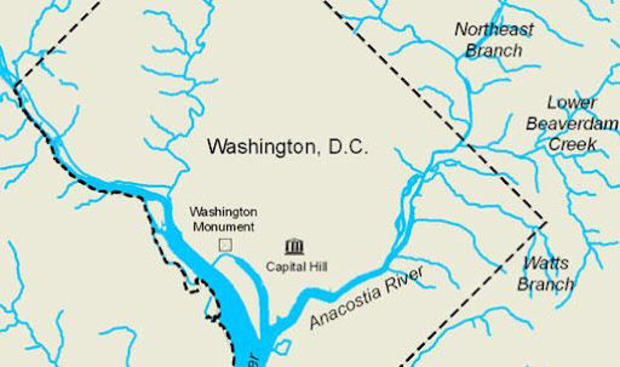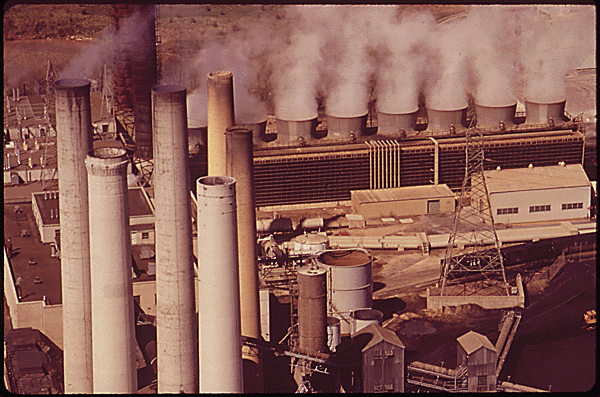Pepco to pay $57 million over "toxic pollution" of Anacostia River in D.C.'s largest-ever environmental settlement
A century-old electric company that serves hundreds of thousands of customers in the Washington D.C. area spent decades allegedly releasing toxic pollutants into the Anacostia River. Now, in a historic settlement, the Potomac Electric Power Company will have to pay more than $47 million to help clean it up, and another $10 million in fines, the Office of the Attorney General for the District of Columbia announced this week.
Attorney General Brian Schwalb announced the settlement – the largest environment settlement in the district's history – on Tuesday, saying the company was responsible for "persistent toxic pollution" in the river, which runs through D.C. and Maryland.
The Anacostia River is one of the "most heavily altered and contaminated watersheds" in the Chesapeake Bay, according to NOAA, with runoff and hazardous waste sites contributing to "decades of pollution." The agency says that the river's watershed, while home to hundreds of thousands of people, dozens of fish species and hundreds of bird species, is also home to numerous hazardous waste sites.

Those sites have resulted in heavy metals, pesticides and polychlorinated biphenyls (PCBs) in the waterway, the last of which are industrial products that were banned in the country in 1979. According to the EPA, they are known to cause cancer and issues involving the immune, reproductive, nervous and endocrine systems. in animals. In humans, they are considered "probable human carcinogens," according to the EPA.
It can take decades for those chemicals to break down.
Schwalb said that the Potomac Electric Power Company, known as Pepco, played a large role in this issue. Two of the company's previous facilities, Buzzard Point and Benning Road, as well as some of their transformer vaults, "resulted in spills, equipment leaks and intentional release of petroleum and hazardous substances," including PCBs, the attorney general said.
At the company's Benning Road Facility, the attorney general's office said Pepco released pollutants into groundwater and soil. That site was run from 1906 to 2012 and has been under an environmental investigation since 2011.

At Buzzard Point, Pepco is accused of spilling or releasing petroleum and other substances into the soil and groundwater across decades since it began operations in 1938.
"Until 2013, at a rate of at least twice per month, Pepco intentionally pumped the pollutants in its containment structures – intended to prevent spills and leaks – into storm sewers that emptied into the Anacostia River," the attorney general's office said. "While internal company policy recognized that discharges to storm sewers should never occur, in practice the company continued to discharge pollutants into storm sewers for years."
The final major pollution point was at the roughly 60,000 underground Pepco transformer vaults, which the attorney general said are often filled with polluted runoff. The company spent decades pumping that water, which contained PCBs and petroleum among other things, into sewers that led to rivers and streams, the attorney general says.
"For decades, Pepco routinely discharged hazardous chemicals into soil, groundwater, and storm sewers, which fouled the Anacostia River, deprived us of the river's many benefits, and endangered public health and safety," Schwalb said. "And as is too often the case, communities of color East of the River bore the brunt of the company's illegal conduct."
In 2012, a study partially funded by NOAA found that almost half of those who lived near the river – an estimated 17,000 people – were unaware of the dangers that came with eating fish from the river. The agency has recommended people not to eat eel, carp or striped bass from the river because of the high levels of contaminants, as well as recommended limiting other types of fish from its waters. The local fishermen consuming the fish were disproportionately Black, Latino or Asian, the study found.
Schwalb said that while Pepco played a large role in the river's pollution, it isn't "solely responsible" – and should receive credit for accepting formal responsibility. Along with paying $10 million in civil penalties, the utility company will have to pay $47 million to help Washington, D.C. clean up the Anacostia River.
- In:
- Environment
- Water Conservation
- Pollution
- Washington D.C.

Li Cohen is a social media producer and trending content writer for CBS News.
Disclaimer: The copyright of this article belongs to the original author. Reposting this article is solely for the purpose of information dissemination and does not constitute any investment advice. If there is any infringement, please contact us immediately. We will make corrections or deletions as necessary. Thank you.





